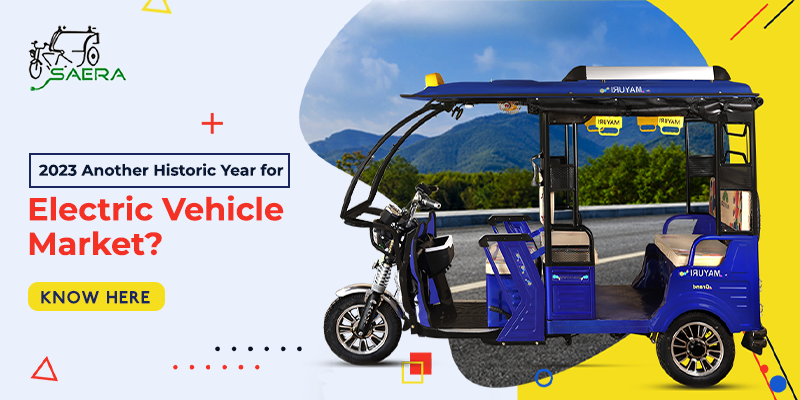The departure of 2022 and the arrival of 2023 show another momentous year for electric vehicle markets and technology, with effective regulations, sales growth, breakthroughs, and milestone models on the way.
In 2022, EV sales provided much-needed evidence of how all EVs have established a significant presence in the Indian market. EVs are not only selling themselves due to their qualities set by battery-operated vehicle manufacturers, but the Indian government has also performed an excellent job of supporting EV manufacturing and demand increase.
What are Electric Vehicles, and how do they operate?
Electric vehicles (EVs) are self-propelled autos used to carry people and commodities from one location to another. They operate by storing energy in batteries, which are charged by self-charging technologies like regenerative braking systems and turbochargers, converting kinetic energy into electrical energy. Hybrid electric vehicles (HEVs), battery electric vehicles (BEVs), and plug-in hybrid electric cars are among them (PHEVs).
India’s adoption of EVs is a big victory.
As far as electric penetration is concerned, India is at an inflection point for all types of electric vehicles. All EVs have made their strong place in the Indian market. In 2022, EV sales gave much-needed validation. The Indian government has also been playing a great job backing up EV production and demand expansion, apart from the overarching role played by the state government and central government as policymakers.
3.5 lakh EV units were registered on September 1st, 2022, where Uttar Pradesh succeeded in the top position for EV registrations in the country, followed by Tamil Nadu and Karnataka. The E-rickshaw/e-kart category (top speed less than 25 km/h) controlled the market, where 45% of three-wheeler sales increased.
Upcoming Years for EV in India
EV sales are predicted to grow at a 68% CAGR through 2027. The higher sales will be attributed to e2Ws and electric auto categories, which include three and four-wheeler EVs (including e-rickshaws). A set duty cycle, as well as moves by small companies, including major corporations and smaller outlets like Dominos, to adopt electric cars for last-mile deliveries, would drive high sales of two and three-wheeler electric vehicles.
Electric buses are gaining popularity as a result of the demand for more fuel-efficient and refined vehicles that are eco-friendly. Electric buses could now be seen on the routes of Lucknow, Delhi, Kerala, Dehradun, Manali, and Hyderabad as part of public transit and state road transportation services. Another reason is that leading e-commerce businesses in India want a 100% electric fleet by 2030.
Suggest Read: What are the Advantages of Electric Three-Wheelers?
India will have 9.1 million electric cars on the road by 2027, compared to 2.20 million in 2023, 3.90 million in 2024, 5.62 million in 2025, and 7.51 million in 2026 considering the graphs. In the upcoming years, it portends an enormous market expansion for the Indian electric vehicle industry.
Be a part of this big moment by introducing EVs in your businesses with Saera Electric Auto Private Limited! The rise of electric vehicles will present various chances for corporations to invest. There are several simple and risk-free methods for adopting EVs into your company function for a profitable journey. Saera Electric Auto Private Limited, one of the top battery-operated vehicle manufacturers, will assist you in effectively moving forward with EV. Get in touch with us today to learn more!

